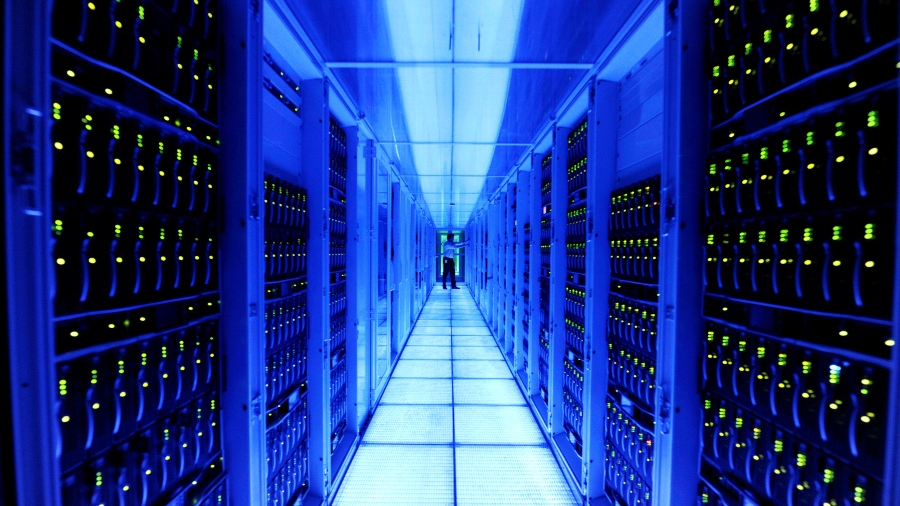How the cost of energy crisis trickles down to data centers as an end user
Businesses peak into their energy-sucking server rooms

Due to the conflict in Ukraine and disruptions in the flow of natural gas across Europe, energy prices are increasing around the world. While some governments are taking steps to cap the increase, the likelihood that there will still be an increase over the coming months is high.
Companies that run their own on-premise servers and data centers have been facing never-seen-before challenges in 2022. Electricity bills rose 4-5 fold over the last three years with uncertain times ahead due to the reworking of Ofgem price caps and a revisiting of fixed-price energy deals.
A recent report commissioned by Aggreko found that 60% of data center professionals in the UK and Ireland alone said their electricity bills had increased by up to 40% over the past three years, while 3% of the UK respondents reported price increases in excess of 50%.
While data centers are not immune to rising costs, Rusty King, CTO of the European Division of Thrive, tells TechRadar Pro that they often provide greater energy efficiency, superior backup systems, and around-the-clock support, while sharing just how the energy crisis will affect businesses that manage their own infrastructure.
How will the energy crisis affect businesses that manage their own infrastructure?
There are several potential implications for organizations that manage their own infrastructure. Firstly, increases and instability in power costs for standalone businesses are more likely to be greater than data center providers that should have a greater buying power.
Secondly, should there be a requirement for power to be turned off for extended periods of time by the energy providers, organizations managing their own infrastructure will need to have a backup capability or be subject to downtime for all equipment.
Data center facilities will have both UPS battery and generator capabilities to mitigate any outages to co-location or private cloud customers.
Sign up to the TechRadar Pro newsletter to get all the top news, opinion, features and guidance your business needs to succeed!
What are some of the never-seen-before challenges companies are facing in 2022, in regards to their own on-premise servers and data centers?
Apart from the power pricing and potential power cuts mentioned above one other issue is extended lead times on equipment as a result of the world wide component shortage. These can affect companies looking to replace equipment, subject to failures or requiring expansion and should be factored into these projects.
How can organizations make the move to the colocation and why should they?
The move to colocation can be very straightforward, by engaging with organizations such as Thrive who have data center space available. A consultation engagement will help determine what equipment can be colocated as well as all requirements for user connectivity.
The service will include a project to move equipment into the data center as well as remote hands and eyes available to limit visits for the customer to the data center. Options are available for rack capacity and power included or just the rack cost with power paid monthly as used.
With the energy crisis currently affecting the data center sector, how will the cost trickle down to end users?
Unfortunately, no-one is exempt from the current power price increases, data centre providers are also affected. Power increases will be passed on to customers in line with contractual agreements.
This is also likely to affect increases to cloud services that are typically delivered as a monthly consumption model to end users. Whilst power is only one component of cloud services, it will still have an impact on the end user price.
What should end users do to avoid the financial impact the energy crisis will have on them?
There are limited options available to completely mitigate the current situation, if possible users should try to find fixed term contract pricing for services, although these are becoming more difficult to find given the volatility of energy prices. The other advice is don’t be afraid to shop around although movement may be restricted by contractual terms.
What is the future of data centers?
There is still a very clear future for data centers, whilst many organizations and users are migrating to Software as a Service (SaaS) platforms for many applications, there are still a number of services that require dedicated hardware that needs to be hosted somewhere.
The current power crisis has meant that more organizations want to absolve the responsibility for hosting equipment themselves to a data center facility with resilience and backup capabilities. This situation is likely to remain at least for the foreseeable future.
- Want to trim down your reliance on third-party data centers? Check out our guide to the best small business servers

Abigail is a B2B Editor that specializes in web hosting and website builder news, features and reviews at TechRadar Pro. She has been a B2B journalist for more than five years covering a wide range of topics in the technology sector from colocation and cloud to data centers and telecommunications. As a B2B web hosting and website builder editor, Abigail also writes how-to guides and deals for the sector, keeping up to date with the latest trends in the hosting industry. Abigail is also extremely keen on commissioning contributed content from experts in the web hosting and website builder field.